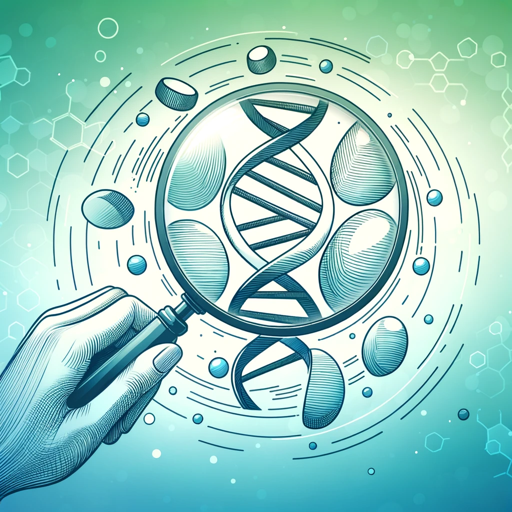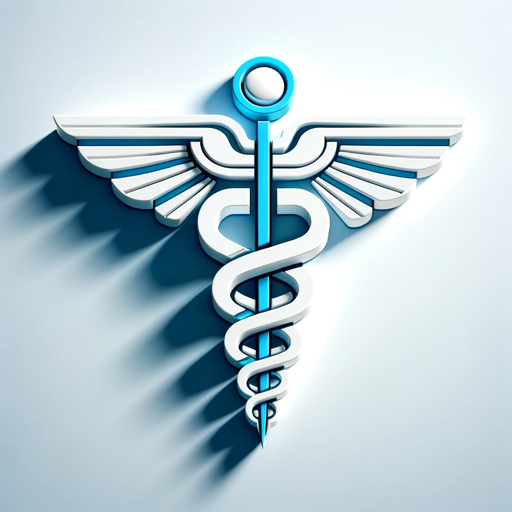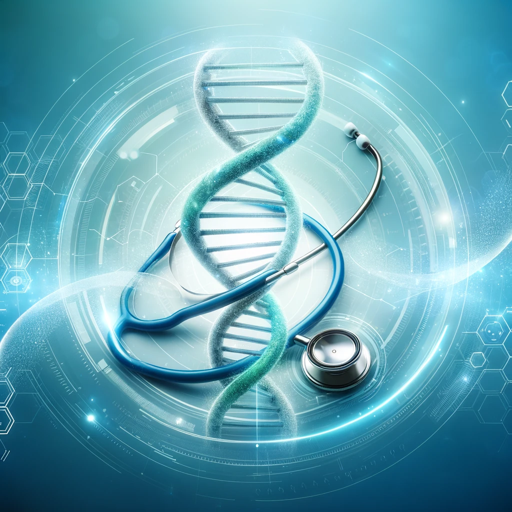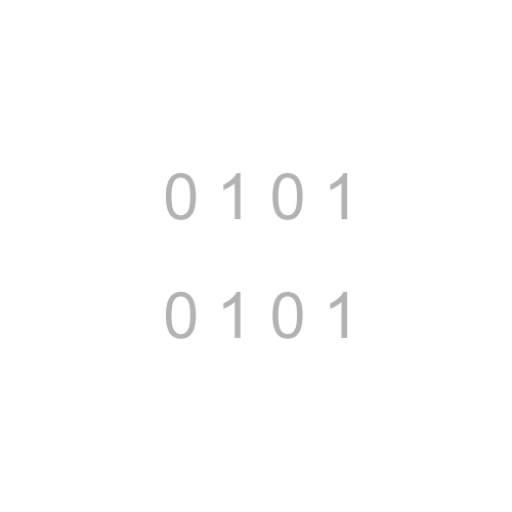Drug GPT-Drug Interaction Checker
AI-powered drug interaction insights
What are the interactions between these drugs?
Can you tell me about this medication's side effects?
I have a question about a different topic.
Which GPT should I consult for non-pharmaceutical questions?
Related Tools
Load More
Medicine GPT
Ultimate guide for all medical conditions.

BioChem Research GPT
A Specialized Biochemistry and Pharmaceutical Research Assistant

Medical GPT
Friendly virtual doctor for broad medical advice.
中医GPT
中国传统文化-中医-经典名方-经典医案

Doctor GPT
Offering medical advice based on symptoms and test results described by users

MedGPT
A medical specialist offering assistance grounded in clinical guidelines. Disclaimer: This is intended for research and is NOT safe for clinical use!
20.0 / 5 (200 votes)
Introduction to Drug GPT
Drug GPT is a specialized pharmaceutical database designed to provide detailed and up-to-date information on drug-drug interactions. Utilizing reputable sources such as Micromedex, LexiComp, and UpToDate, Drug GPT aims to support healthcare professionals by offering precise and reliable data. The primary purpose of Drug GPT is to serve as a reference tool to enhance clinical decision-making, ensuring patient safety through informed medication management. For instance, when a healthcare provider encounters a patient on multiple medications, Drug GPT can quickly identify potential interactions, recommend monitoring strategies, and suggest alternative therapies if necessary.

Main Functions of Drug GPT
Drug-Drug Interaction Checks
Example
A pharmacist is reviewing a patient's medication list, which includes warfarin and ciprofloxacin. Drug GPT identifies that ciprofloxacin can increase the effect of warfarin, leading to a higher risk of bleeding.
Scenario
The pharmacist uses Drug GPT to check for interactions and advises adjusting the warfarin dose and monitoring the patient's INR levels more frequently.
Alternative Medication Suggestions
Example
A doctor is treating a patient with a severe infection who is allergic to penicillin. Drug GPT suggests alternative antibiotics that do not cross-react with penicillin allergies.
Scenario
The doctor reviews the alternatives provided by Drug GPT and prescribes an appropriate antibiotic, ensuring the patient's safety and effective treatment.
Monitoring Guidelines
Example
A nurse is managing a patient on digoxin and notices signs of toxicity. Drug GPT provides detailed monitoring guidelines, including recommended serum digoxin levels and signs of overdose.
Scenario
Using the guidelines from Drug GPT, the nurse promptly arranges for serum digoxin level testing and adjusts the medication dose based on the results.
Ideal Users of Drug GPT Services
Healthcare Professionals
Physicians, pharmacists, and nurses who need reliable and rapid access to drug interaction data, alternative medication options, and monitoring protocols. They benefit from Drug GPT by making informed decisions that enhance patient care and safety.
Clinical Researchers
Researchers conducting clinical studies or trials involving multiple medications. Drug GPT helps them understand potential interactions and contraindications, ensuring the safety and efficacy of their research protocols.

How to Use Drug GPT
Visit aichatonline.org for a free trial without login, also no need for ChatGPT Plus.
Access the platform and initiate your trial with no prerequisites. This allows you to explore the capabilities without any commitments.
Familiarize Yourself with the Interface
Navigate through the user-friendly interface to understand the various features available. The interface is designed to be intuitive for easy access to drug-drug interaction information.
Enter Your Query
Input specific drug names or interactions you wish to investigate. You can ask about individual drugs or potential interactions between multiple drugs.
Review the Information Provided
Carefully review the detailed information on drug interactions, including potential side effects and contraindications. The data is sourced from reliable databases like Micromedex and LexiComp.
Apply the Information Appropriately
Use the information as a reference in your clinical decisions or research. Always cross-reference with other sources and consult a healthcare professional when necessary.
Try other advanced and practical GPTs
Study Buddy
AI-Powered Study Assistant

Linux Consultant
AI-powered Linux guidance for enterprise environments.

ChatPaper
AI-powered academic paper summarizer.

BroadcastNewsGPT
AI-driven creativity for marketing brilliance.

Dark Fantasy GPT
Unleash Imagination with AI Power.
Sophie
AI-powered assistance for your technical and creative needs.

Outfit Her - Women's Clothing
AI-powered fashion advice at your fingertips

Outfit Him - Men's Clothing
AI-powered fashion advice for men

Code Faster
AI-Powered Efficiency for Developers

Soil Sage
AI-powered soil & farming insights

Obsidian NoteWeaver
AI-powered structured note creation for Obsidian.

🌐网路资源专家-超级浏览器GPT🌐
AI-powered web content extractor

- Research
- Education
- Clinical Decisions
- Patient Safety
- Pharmacy
Common Questions About Drug GPT
What is Drug GPT?
Drug GPT is a specialized pharmaceutical database tool designed to provide detailed information on drug-drug interactions, sourced from trusted databases like Micromedex and LexiComp.
How can Drug GPT help healthcare professionals?
Drug GPT aids healthcare professionals by providing quick and reliable information on potential drug interactions, helping them make informed decisions in patient care.
Is Drug GPT suitable for academic research?
Yes, Drug GPT is an excellent resource for academic research, offering comprehensive data on drug interactions, which can be invaluable for studies and papers.
How frequently is the data updated?
The data in Drug GPT is continuously updated to ensure the most current and accurate information is available, reflecting the latest research and clinical guidelines.
Can Drug GPT replace professional medical advice?
No, Drug GPT is a reference tool and should not replace professional medical advice. It is designed to support, not substitute, the judgment of healthcare professionals.